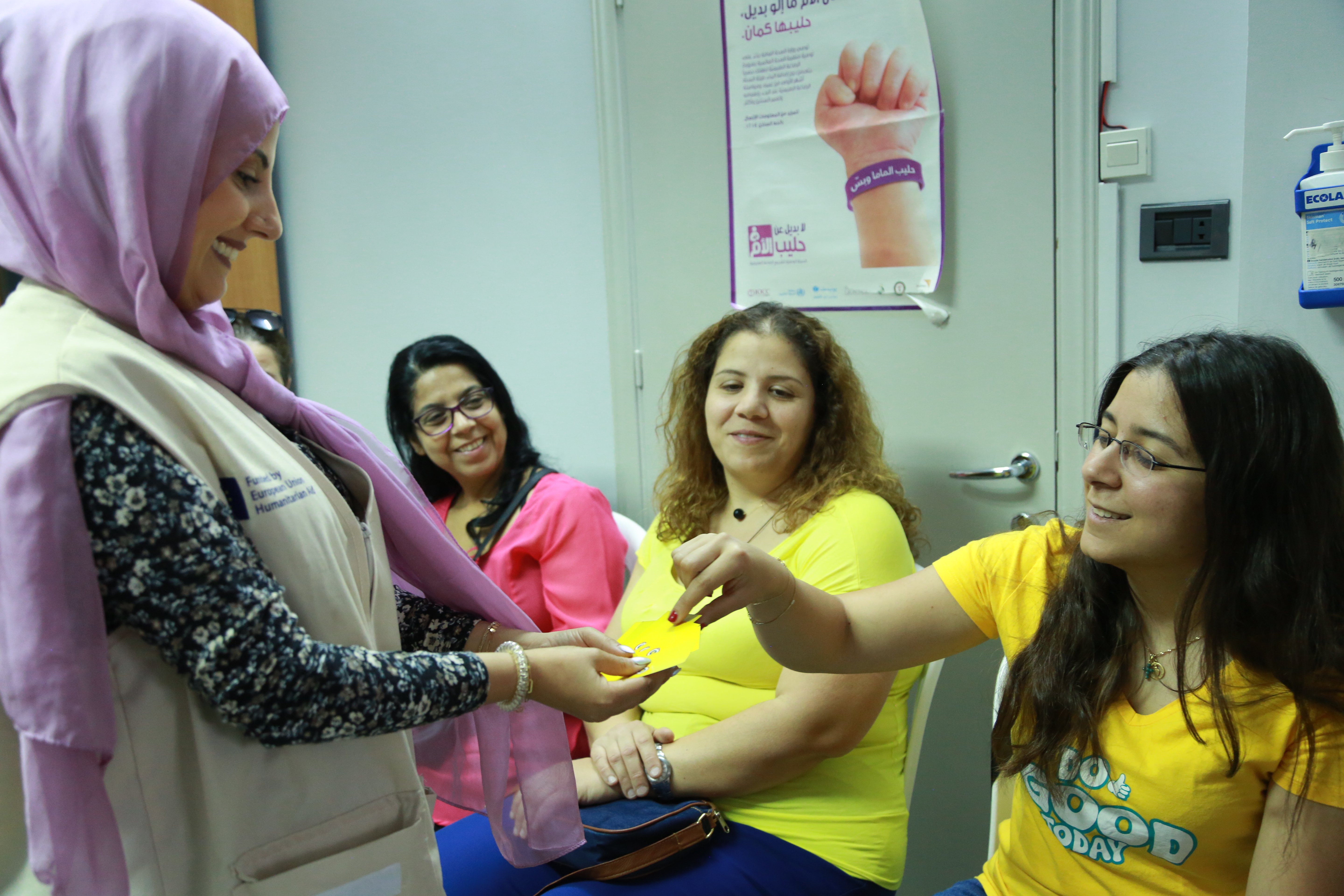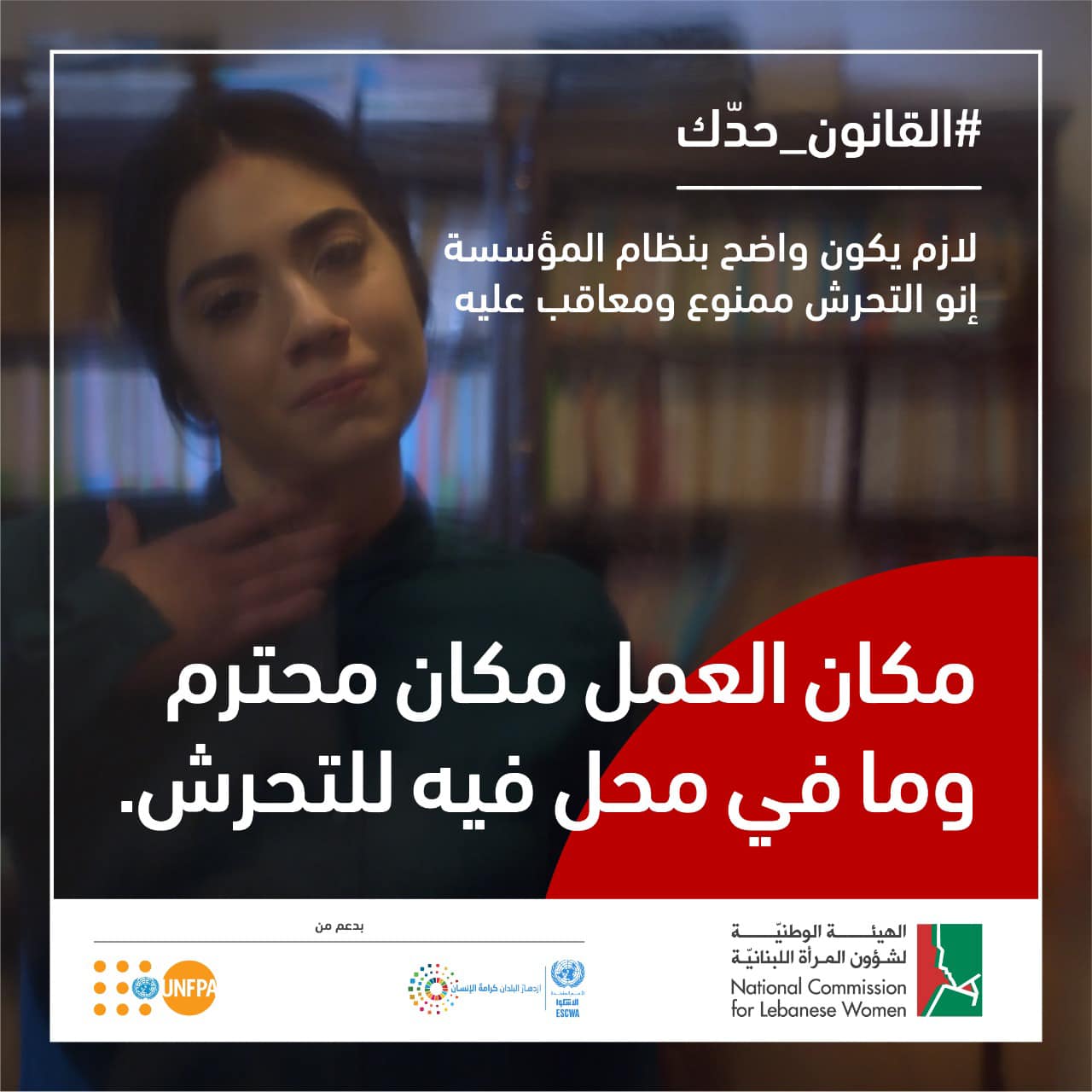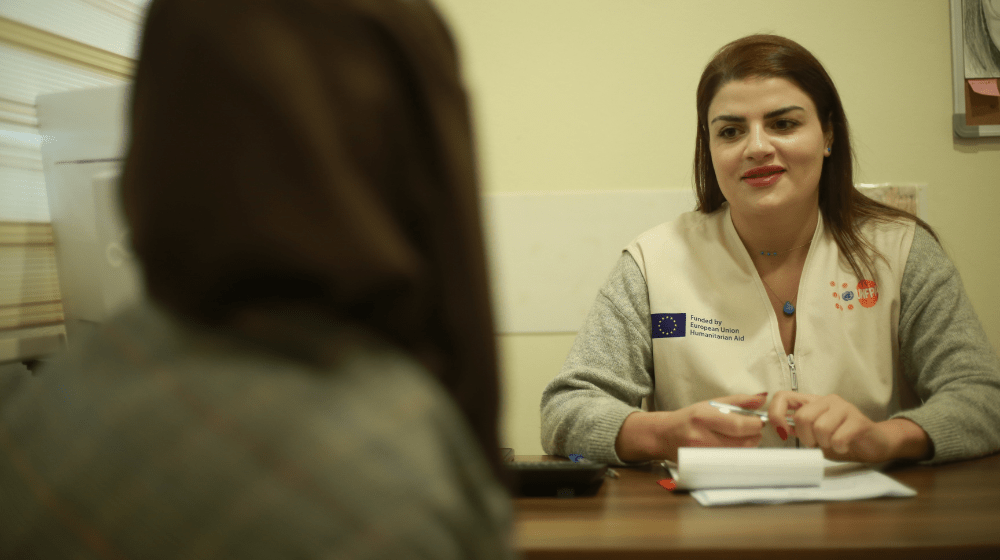Lebanon’s landmark Law 205 marked a seismic shift in the country’s fight against sexual harassment, and lit a beacon of hope for women and girls across the entire Arab region.
Ratified in 2021, the Law criminalized sexual harassment for the first time ever, with the most flagrant perpetrators facing up to four years in prison and fines of up to 50 times higher than the minimum wage.
The law notes that sexual harassment can occur through speech, actions, and electronic and online means, and it considers single or repeated acts that use, ‘psychological, moral, financial, or racist pressure to obtain benefits of sexual nature,’ as sexual harassment.
The law affords protection to both survivors and witnesses. It stipulates that a specialized fund be created and administered by Lebanon’s Social Affairs Ministry to provide support and rehabilitation to survivors, to raise awareness of sexual harassment, and to give survivors the right to seek compensation.
“Law 205 and its full implementation could not be more urgent,” notes Nicia ElDannawi, a gender-based violence specialist with UNFPA. “Right now, Lebanon’s economic crisis is pushing up sexual harassment and gender-based violence across the country.”
Almost half of respondents to the 2022 Lebanon Gender Barometer for Sexual Harassment survey, organized by the National Commission for Lebanese Women, report being exposed to sexual harassment.
Crucially, 97 per cent of survivors said they had not filed a complaint. This was mainly driven by a lack of understanding around sexual harassment and the perceived inability of the authorities to act.
‘Making sexual harassment a crime was a crucial first step, but the law alone is not enough,” explains Asma Kurdahi, Head of Office for UNFPA in Lebanon. “Authorities involved in enforcement need training and sensitization. Perpetrators, survivors and the whole of society must be made aware of what this means, and the damaging norms that fuel sexual harassment must be challenged and transformed.”
Accelerating impact
UNFPA has supported the implementation of Law 205 since its ratification.
Working with the Government, the National Commission for Lebanese Women, the World Bank and the United Nations Economic and Social Commission for Western Asia, UNFPA has worked on key policy, advocacy and capacity building initiatives.
This includes a set of standard operating procedures in implementing the law, including guidelines and procedures for public and private sector employers to manage sexual harassment in the workplace.
A training manual for the Internal Security Forces [ISF], the lead agency in implementing Law 205, was produced for investigators and officers, in partnership with the ABAAD Resource Centre for Gender Equality. A train-the-trainers workshop was provided to ISF Officers to embed and spread the guidelines.

Information, education and communications products for legal professionals, social workers and young people were produced that define sexual harassment, detail the new law and how to manage cases.
A media and social media campaign featuring prominent Lebanese actor Joy Al Hani reached hundreds of thousands of people through social media, and many more through videos on national TV. UNFPA also supported sensitization sessions for journalists to cover sexual harassment and Law 205.

Moving forward, UNFPA's new partnership with the Lebanese Parliament will map all actors and agencies engaged in Law 205’s implementation. A tracking system will strengthen monitoring, tackle gaps, and prioritize actions, contributing to a solid base of evidence around the law's implementation.
Beacon of hope
Thirty years ago, at the International Conference on Population and Development (ICPD) in Cairo, the world united behind a vision that put women’s and girls’ rights and choices at the heart of development.
In 2013, Arab leaders endorsed the landmark Cairo Declaration, which aimed to boost progress in achieving the ICPD vision. With 129 recommendations for governments to boost dignity, equality and sexual and reproductive health and rights, it set a path to progress that remains only partially fulfilled.
“The 30th anniversary of the ICPD marks a crucial moment to remind the Arab world of the enduring importance of this transformative agenda that champions people-centred development, rights and choices for all, and an end to discrimination, sexual harassment and gender-based violence,” says Laila Baker, UNFPA Regional Director for the Arab region.
Despite the polycrisis of conflicts, climate, humanitarian emergencies, rising disparities and the enduring impact of COVID-19, the greatest progress in the Arab region has been made in countries where women and girls are put squarely at the centre of development. This clearly shows that Investing in women’s and girls’ health, rights and agency drives progress in communities and catalyzes prosperity.
“Lebanon’s Law 205 stands out as a beacon of hope and progress. UNFPA is proud to have played a part in its implementation. Yet there is still much to be done to end all forms violence against women and girls, including sexual harassment, and the ICPD agenda is the roadmap to achieving this goal,” says Laila Baker, UNFPA Regional Director for the Arab region.


